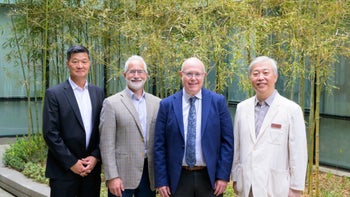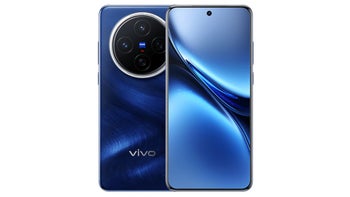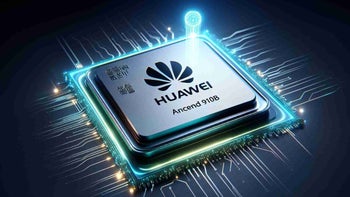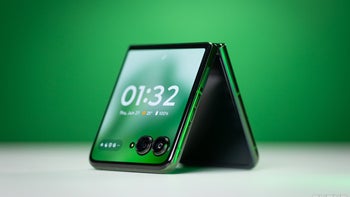Can AI wearables extend life expectancy? Insights from Samsung health leaders

(From left) Samsung’s Dr. Hon Pak, BeeKeeper AI’s Dr. Michael Blum, Mills Peninsula Medical Center’s Dr. David Klonoff and Samsung Medical Center’s Professor Myung Jin Chung
These days, not a day goes by without some AI-related news getting in the way: a technological breakthrough here, an important advance there… AI is omnipresent!
That being said, AI can play a crucial role in (near) future medicine and personal well-being. Wearable devices like smartwatches and wristbands (and rings) can collect vast amounts of clinical data, including blood pressure, respiratory rate, oxygen levels, pulse, and body temperature. AI can analyze this data in real time, providing valuable insights for health monitoring and early detection of health issues.
Recently, Dr. Hon Pak (SVP and Head of Digital Health Team, MX Business at Samsung Electronics) sat down with Samsung Health Advisory Board members (pictured above) at the Samsung Medical Center in Seoul to discuss the future of health and AI.
He was joined by:
- Dr. Michael Blum, M.D., CEO and co-founder of medical analysis platform, BeeKeeper AI, former Chief Digital Transformation Officer at University of California, San Francisco (UCSF), Division of Cardiology
- Dr. David Klonoff, M.D., President of the Diabetes Research Institute at Mills Peninsula Medical Center
- Professor Myung Jin Chung, Director of Samsung AI Research Center at Samsung Medical Center (SAIC)
They shared expert insights and perspectives on how Samsung can strategically embrace AI and, ultimately, make us live longer and healthier.
Here are the key takeaways from the discussion:
- Professor Myung Jin Chung emphasized the importance of lifelong data from wearables in gaining a comprehensive understanding of patients' health histories and the role of AI in simplifying data interpretation.
- Dr. Michael Blum highlighted the significance of continuous monitoring in early disease detection, citing examples like atrial fibrillation and high blood pressure, which can benefit from smartwatch monitoring powered by AI.
- Dr. David Klonoff discussed the increasing interest in glucose monitoring for overall wellness and diabetes management, emphasizing the value of combining health metrics to identify early warning signs of health issues.
- Dr. Klonoff and Dr. Blum encouraged Samsung to leverage AI to promote behavioral change and wellness through its technology, fostering long-term health improvements for users.
- Professor Chung underscored the importance of integrating Samsung's device ecosystem to facilitate behavioral changes and create a supportive care circle involving family and friends for improved wellness and health awareness.
Understanding a patient's complete health history is essential for providing comprehensive and patient-centered care. It allows doctors to consider all relevant factors, including past medical conditions, treatments, lifestyle choices, and family medical history, in order to deliver holistic care that addresses the patient's overall health status.
Check out our top 10 list of best smartwatches for Android lovers in 2024: Samsung's Galaxy Watch 6 Classic tops it!

If the topic fascinates you, here's the full interview:
Q: What do you see as the future of health and what role does technology play in it, especially when combined with Generative AI?
Professor Chung: Through years of clinical experiences, I’ve learned there is immense value in a comprehensive, 360-degree understanding of a patient’s health history. However, it can be challenging to fully grasp their lifestyle or key wellness factors, such as sleep patterns or eating habits, especially when treatment is focused on specific symptoms. Lifelong data gained from wearables can be helpful for healthcare and clinical management to better understand the full context of one’s health history. And AI can assist clinicians by streamlining the management and interpretation of collected information over time, simplifying the process. The future of AI is distilling vital insights from daily life to deliver a deeper understanding of one’s health based on continuous monitoring by a wearable.
Dr. Blum: As a cardiologist, I also want to add that continuous monitoring is emerging as a vital tool in early detection and prediction of a potential disease. For instance, conditions like atrial fibrillation and high blood pressure, which are high risk and high impact, yet manageable through low-intensity interventions, can benefit greatly from such monitoring. By wearing a smartwatch, we can better understand the underlying issues that may be contributing to it, and Samsung can be hugely impactful here. These tools, powered by AI, can easily turn data into consumable insights and actionable wisdom, empowering individuals to take proactive steps to reduce possible health risks.
Q: What role do you expect Samsung to play in the evolving health landscape?
Dr. Klonoff: We encourage Samsung to not only embrace AI in their health monitoring technology but continue to lean on their pioneering heritage of innovation to emerge as a leader in promoting behavioral change. Through ongoing conversations and collaborative efforts with medical experts, Samsung can help people make the changes in their lives that are needed. Leveraging these insights can encourage people to stay healthy over the long term without feeling overwhelmed and enable them to lead more fulfilling and enjoyable lives.
Professor Chung: I echo Dr. Blum’s sentiment, in that while Samsung devices are already deeply embedded into our everyday lives, there are opportunities to further embrace its device ecosystem to facilitate behavioral changes for a happier, healthier tomorrow. However, there’s immense power in making behavioral changes with support from family members; it’s more effective than taking on this challenge alone. That’s why it’s necessary to leverage continuous monitoring and insights, as well as create a care circle with family and friends. Samsung can be a huge contributor in creating a care circle by leveraging its expertise and advanced capabilities to maximize social connections with the goal of providing users with greater knowledge about themselves and their loved ones.













Things that are NOT allowed: